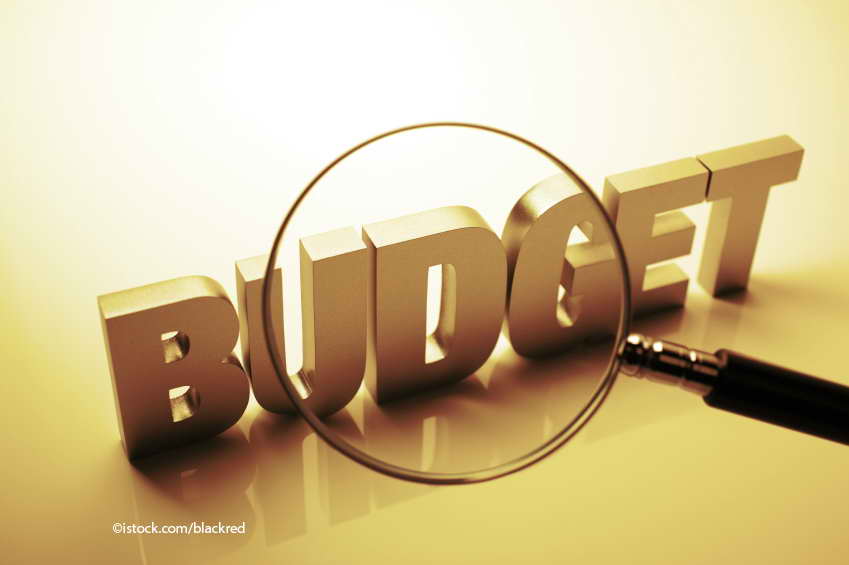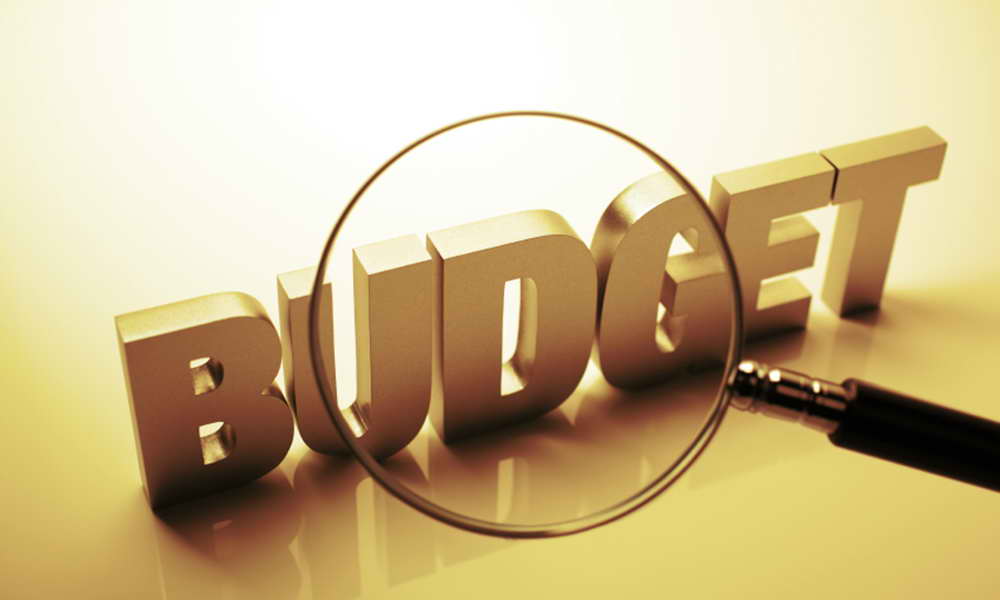December 9, 2013
12/9: Nearly Seven in Ten Americans Not Optimistic About Budget Deal
McClatchy/Marist National Poll
Despite signals from lawmakers that a budget deal may be struck before the next deadline, many Americans aren’t holding their breath that an agreement will be reached. 68% of adults nationally do not think President Barack Obama and the Republicans in Congress will have a meeting of the minds before time runs out. 28% say they will reach an agreement, and 4% are unsure. Almost identical proportions of registered voters share these views.
 Click Here for Complete December 9, 2013 USA McClatchy-Marist Poll Release and Tables
Click Here for Complete December 9, 2013 USA McClatchy-Marist Poll Release and Tables
POLL MUST BE SOURCED: McClatchy-Marist Poll
“Given the track record, it’s not surprising that Americans are pessimistic,” says Dr. Lee M. Miringoff, Director of The Marist College Institute for Public Opinion. “There are no winners in the budget battle in Washington as far as public opinion is concerned.”
The sentiment in the nation has soured over budget deliberations between the president and Congress. When asked in December 2012 if Mr. Obama and the Congressional GOP would reach a fiscal cliff deal before the end of the year, a majority of voters — 52% — believed they would find common ground while 42% thought they would not come to an agreement. Six percent, at that time, were unsure.
At least six in ten voters think the deadline will pass without a budget in place regardless of party affiliation.
- 60% of Democrats do not think lawmakers will reach a consensus while 34% believe they will. Six percent are unsure. Last year, Democrats were much more optimistic. 68% of Democrats, then, thought a deal to avoid the fiscal cliff would be made. 26% did not think the two parties would reach an agreement, and 6% were unsure.
- Three in four Republicans — 75% — say a budget plan will not be in place while 23% report they will reach a deal. Two percent are unsure. Pessimism among Republicans has grown. Last year, 54% of the GOP said a deal to avoid the fiscal cliff would not be reached. 40% thought a compromise would be found, and 6% were unsure.
- 69% of independents think federal lawmakers will not be successful in reaching a budget deal while 30% believe they will. One percent is unsure. In that previous McClatchy-Marist Poll, independents divided. 48% believed a fiscal cliff deal would be brokered while 46% said it would not be. Six percent were unsure.
Table: Will a Federal Budget Deal be Reached by the Next Deadline?
Cut Spending to Reduce the Deficit? Three in Four Prefer another Option
How should the nation close its budget gap? 38% prefer a combined approach which includes both raising revenues such as limiting tax deductions on higher income and cutting spending, including reductions in entitlement programs like Medicare and Medicaid. 37% of Americans would like the government to mostly increase revenues. 16% would like to see cuts to government spending. Nine percent are unsure.
In April, 42% of residents wanted to both reduce spending and increase revenues. 35% preferred increasing revenues only while 17% wanted to slash spending. Six percent, at that time, were unsure.
Among registered voters, 38% would like to both increase revenue and decrease spending. 37% support increasing revenues while 16% want to cut spending. Eight percent are unsure. In the spring, 42% endorsed both raising revenue and cutting spending. 34% preferred only raising revenue, and 18% wanted only spending cuts. Six percent, at that time, were unsure.
Who has the better approach to deal with the federal budget deficit? A plurality of Americans — 46% — say members of the GOP in Congress have a clearer vision while 41% think Obama has a keener approach. Less than one percent says both are capable to deal with the issue while 8% believe neither Obama nor the Republicans has a solid approach to tackle the federal budget deficit. Five percent are unsure. Similar proportions of registered voters share these views.
When McClatchy-Marist last reported this question in April, 44% of adults said Obama had the better approach while 40% thought the Republicans had the better plan. One percent thought both had a good vision while 9% believed neither had a clear sense of what needed to be done. Six percent, at that time, were unsure.
Not surprisingly, there is a partisan divide. Most Democrats think President Obama has the better approach to deal with the federal budget deficit, little changed from last April. Among Republicans, there has been a slight bump in the proportion who believe the Republicans in Congress have the better plan. Independents divide.
- 76% of Democrats say President Obama has the clearer vision to deal with the deficit. This is little changed from 78% in the spring.
- 87% of Republicans say the members of their own party can lead the nation out of the deficit. This is up slightly from 81% in April.
- 45% of independent voters say the Congressional GOP has the better approach to take on the budget deficit while 40% report Obama has the clearer plan. This compares with 40% in the spring who said the Republicans in Congress had the stronger approach. 39%, at that time, reported Obama had the better plan.
Table: Method to Reduce the Federal Budget Deficit
Few Americans View Positive Effect of Sequestration
Eighty-five billion dollars in across the board spending cuts took effect in March, and only 15% of Americans think those cuts have had a positive impact on the nation’s economy. This compares with 38% who say they have had a negative impact on the economy and 40% who believe the cuts have had no impact at all on the nation’s economic status. Six percent are unsure.
There has been little change on this question since it was last reported in the spring. At that time, 14% said the spending cuts did not improve the economy. 36% of residents thought the reduction in spending had a negative effect on the economy while 40% reported it had no impact at all on the economy. 10%, then, were unsure.
Among registered voters, 15% think sequestration had a positive impact on the economy. 37% believed it had a negative one, and 42% said it had no effect at all. Six percent are unsure. In McClatchy-Marist’s previous survey, 13% of voters thought the spending cuts were beneficial to the economy. 36% reported they had a negative impact, and 42% said sequestration made no difference. Nine percent, at that time, were unsure.
On the home front, there has been a small bump in the proportion of Americans who say sequestration has had a negative effect on their family. 31% have this view compared with only 6% who think it has made their family’s financial situation better. More than six in ten — 61% — believe the spending cuts have had no effect on them personally. Two percent are unsure. Similar proportions of registered voters share these views.
When McClatchy-Marist last reported this question in April, 26% of residents thought sequestration had a detrimental impact on their family while 6% said it had a positive one. Close to two-thirds of adults nationally — 65% — believed sequestration did not impact them. Three percent were unsure.
Table: Impact of Sequester on Economy
Table: Personal Impact of Sequester
Round Two… Slim Majority Wants to Reopen Negotiations
Under sequestration, another round of spending cuts is set to take place, but a slim majority of Americans aren’t happy to see those reductions go forward. 51% think talks should be opened up again, and some of the cuts should be replaced with increases to taxes and fees. 39% believe the planned cuts should proceed. Nine percent are unsure. Similar proportions of registered voters share these views.
Not surprisingly, there is a partisan divide.
- 64% of Democrats nationally would like to reopen negotiations while 29% want the spending cuts to take place.
- 55% of Republicans want the spending cuts to go into effect while 38% want to revisit the cuts.
- 52% of independent voters are for reopening negotiations while 40% are for implementing the planned spending cuts.
To prevent further spending cuts, which methods do Americans find acceptable?
- About two-thirds — 66% — think increasing the social security tax for high wage earners is acceptable. 30% do not think such an action is acceptable. Four percent are unsure.
- Nearly six in ten — 57% — think it is okay to tax Internet sales. 39% oppose this proposal. Five percent are unsure.
- Only 39% say it is acceptable to increase fees at national parks. 59% say it is not acceptable. Two percent are unsure.
To avoid increasing taxes and fees, which methods do Americans find acceptable?
- A majority of Americans — 55% — say it is acceptable to reduce pay and benefits to federal employees. 42% are against this proposal, and 3% are unsure.
- Nearly half of residents — 49% — find it acceptable to make cuts to the Affordable Health Care Act known as Obamacare. 46% think this is unacceptable, and 5% are unsure.
- 43% believe it is acceptable to cut defense spending. This compares with a majority — 54% — who believe this is out of line. Two percent are unsure.
- Only 18% support cuts to Medicare spending while eight in ten — 80% — think this is unacceptable. Two percent are unsure.
- Just 13% think it is acceptable to cut Social Security spending. 86% do not believe this is acceptable, and 1% is unsure.
Table: Should Additional Sequestration Spending Cuts Take Effect?
Table: Is Taxing Internet Sales Acceptable to Prevent Further Spending Cuts?
Table: Is Increasing Fees at National Parks Acceptable to Prevent Further Spending Cuts?
Table: Is Cutting Obamacare Acceptable to Avoid Increasing Taxes and Fees?
Table: Is Cutting Defense Spending Acceptable to Avoid Increasing Taxes and Fees?
Table: Is Cutting Medicare Spending Acceptable to Avoid Increasing Taxes and Fees?
Table: Is Cutting Social Security Spending Acceptable to Avoid Increasing Taxes and Fees?
Majority Pessimistic about the Future of the U.S. Economy
Overall, what do Americans think of the nation’s economy? 55% think the worst of the country’s economic conditions are still ahead. 42% believe the worst is behind us, and 3% are unsure.
When McClatchy-Marist reported this question in December 2012, 53% of Americans said the worst was yet to come. 42% reported the worst was over, and 5% were unsure.
Looking at Americans’ attitudes toward the future of their own finances, 43% say, in the next year, they will be about the same economically. 25% report they will be better off while 32% say they will be worse off. In McClatchy-Marist’s July survey, 39% of residents thought their finances would not change in the next year. 29% said they would be better off, and 32% reported they would be economically worse off.
Table: U.S. Economy — Will It Get Worse?
Table: U.S. Economy — Will It Get Worse? (Over Time)


